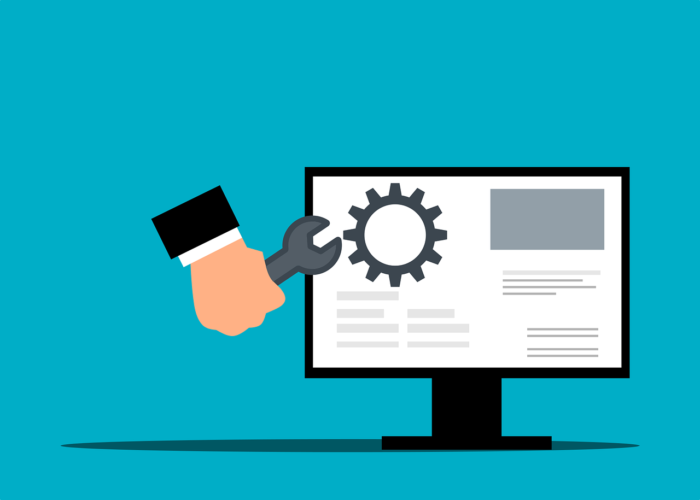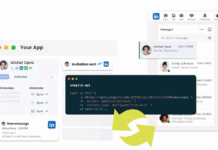People don’t always understand what a startup is and how it differs from some business offices. What is the definition of a startup? How does it differ from other types of business?
Startup
A startup is any young business set up to implement some promising idea or ideas to make a good profit. As a rule, small (2-5 people) companies of people organize startups.
The notion of a “startup” goes hand in hand with the desire of entrepreneurs to create a new information project, counting on its rapid growth and high capitalization. That said, important distinguishing features of startups are their technical natures. Certain technological secrets are the basis for most of them.
Vocation of a Startup
The vocation of a startup is to solve problems and tasks that, over time, become possible to solve only through the use of the results of technological progress. Modern high-tech projects should serve one purpose: to make it easier for users to do anything in their daily lives.
Today’s developers can solve complex problems while doing the project as needed, not as website builders or ready-made template solutions allow.
Privacy
Applying for the development guarantees you confidentiality of the information provided. In addition, modern companies employ proven specialists, so your idea won’t go to the side before the project is launched.
Immersion
Modern software development takes an in-depth look at your startup’s specifics. A personal manager will accompany the project.
Technology Selection
The choice of technology at the design stage significantly affects the entire software dev process, the final software project, and its operation. Specialists with experience in project development will help you choose the best technical solution.
Recognition by Search Engines / Internal SEO Optimization
When developing portals and sites, it is crucial to consider the requirements of search engines. In addition, it allows you to get high website traffic in the future and minimize advertising and promotion costs.
Site Management
You can manage your portal/site by yourself. However, if the project includes the administrative part, a particular interaction interface will be developed and delivered to the customer and administrators’ appropriate documentation (instructions).
MVP (Minimum Viable Product)
A minimal viable product (MVP) is a software product with incomplete features necessary to start the project. It shows the basic idea but doesn’t contain additional services that can be done without at the initial stage (their presence is planned in the ready version of the software project).
MVP’s main advantage is that gathering MVP information is often cheaper than developing a product with the complete feature set — it reduces the costs and risks if the project is suddenly not in demand. In addition, MVP allows you to make an intermediate analysis of the project and thus effectively use the money allocated for the software development.
When creating a project as MVP, you (or together with us) define the set of features included in the MVP. Select what is most important to your startup should be in the first place, and after the project is finished, you can confirm or correct further software development of the software.
Using this project, you can look at an early stage:
- Understand if potential clients have an interest in your idea.
- Get a chance to change, fine-tune further software development of the project.
- Have an opportunity to respond from potential clients or build up a base of your startup supporters early.

The Usual Way of Creating a Project
Software development for startups is a sought-after service in today’s world. Startups usually require a low level of initial investments since the assets at the beginning of the software development are limited. The first investors are often the entrepreneurs themselves, using their funds or money from other businesses.
The development of a startup requires a quick project launch. The average time to create a startup is about five months. The exceptions are complex markets or high-tech, innovative fields. As a rule, developing something new all over again (from scratch) is a very time-consuming and costly process. That’s why it is either expensive or harmful to do quickly.
That is why there are offers on the market, which will allow not to create something new, but to improve the existing. Such platforms are universal and adaptive. You can quickly develop any project at your own expense; thus, you save time and money, but in return, you will give a license to use — 10% of the modification cost. Therefore, all remain a winner.
The most popular software for startups is mobile soft (according to research data, up to 70%). A mobile app is a software designed to run on smartphones, tablets, and other mobile devices and designed for a specific platform. Many mobile apps are pre-installed on the device itself or downloaded from online app stores such as the App Store, Google Play, and others for free or for a fee. Sales of iOS and Android apps alone grew 25 percent to $112 billion in 2020.
Mobile Apps
Mobile apps need to be:
- Practical — this means having only the functionality the customer needs.
- Useful — the app should solve the tasks set by the customer.
- Informative — the user should come back to the app and not delete it after the first viewing.
A mobile soft gives a startup the following opportunities:
- a quick presentation of the company in the marketplace;
- a convenient method of selling goods and services;
- constant communication with consumers;
- automation of internal business processes;
- a collection of preliminary marketing information and statistics.
However, if unsatisfied with revision and license purchase, the developers develop a separate software for you.
Stages of Software Development
- Project Evaluation. Experienced programmers assess the project. After this, the amount of work on the software development of the soft I and its cost is determined.
- Prototyping. Next comes the prototyping process. The correct interface of the soft is an opportunity to solve the client’s problem. He gets to see the functionality of the soft without the software part.
- The requirements specification and contract. The programmers develop the requirements specification together with the customer. After that, the customer signs the contract.
- Preliminary. Demonstration of the results to the customer. Analysis of the customer’s comments and their consideration in the development of the software.
- Completion of the soft dev. Testing. Soft maintenance.
- Completion of soft dev and customer acceptance. Testing. Support of the soft.
Software Development Company Advantages
Check some advantages of resorting to a specialized company for the development of software for startups.
- account of the client’s wishes at the project stage;
- successful experience in projects for medium and large businesses;
- fast time: from 1 month;
- transparent control system and flexibility; and
- low cost of the development of mobile soft.
Contact the professionals to find out how much software for a startup can cost.
Find a Home-Based Business to Start-Up >>> Hundreds of Business Listings.
















































